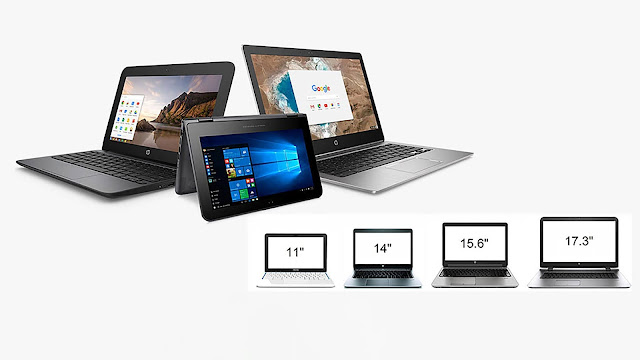What Computer Specs Do I Need for Graphic Design 2021?
Graphic Design System Specifications:
The operating system, CPU, memory
(RAM), storage drive, display type and size, and color accuracy are the most
significant laptop specs to look at for graphic design.
A good laptop is about more than simply speed. Sure, you need
speed to execute your applications, but you also have to consider things like
whether you want to run your programs on a Mac or a PC, RAM, storage, displays,
and color accuracy. You must strike the correct balance when it comes to how
you utilize your laptop. Let's get started!
Mac vs. PC:
The first decision to make is whether you want to use a Mac
or a PC. Even graphic design software is made for both the iOS and Microsoft
Windows platforms. Naturally, you'll want to ensure that your files are compatible
with the software and operating system utilized by any organization with which
you collaborate.
You may have heard that Macs are
designed for free-spirited artists and PCs are better suited for office drones.
It's also worth noting that this impression was manufactured by a firm that
stands to profit from the picture.
The truth is that there was a time when Apple had a virtual
monopoly on the graphic design computer market. On a Mac, digital typography
was born. Photoshop was created with Macs in mind.
CPU:
The computer's functions are
controlled by the CPU or processor. To operate complicated design tools,
you'll need a fast, strong processor for graphic design. The leading
manufacturers change frequently, but for graphic creation, you'll need a quad-core
or extreme series CPU.
Best RAM For Graphic Design:
You'll want the finest RAM setup you can afford whether you're creating a computer for Graphic Design or upgrading an existing one. And, with so many possibilities, deciding on the finest RAM brand to fit your needs might be difficult.
In programs like Photoshop and
Illustrators, graphic designers require computers that can handle massive file
sizes. Not to mention that multitasking has been the norm in recent years.
Overall, the appropriate RAM configuration will keep your computer working
smoothly, allowing you to concentrate on the creative process.
Storage Drive:
A standard hard disc drive (HDD) or a solid-state drive (SSD) are two types of storage drives
(SSD). Although hard drives are less
expensive and have more capacity, they might cause problems with laptops. Hard
drives are heavier, slower, and less durable than solid-state drives. Although
most laptops come with solid-state drives, PCs can be upgraded with SSDs if
they don't already have one. So, in my opinion, SSD is the best option and I
recommend it strongly.
Display Size And Type:
You need the nicest monitor you can afford since graphic
design is a visual medium. A 13-inch monitor is typically too small for graphic
design work. At the very least, aim for 15 inches. Working with a 17-inch screen is preferable, although it may be difficult to transport. You'll also
need a screen with a high resolution (called Retina HD® by Apple). These
screens have a higher pixel density, so you can see more detail. 1920x1080
pixels is the minimum resolution for a successful design.
TN (Twisted Nematic) panels are
used in the majority of monitors on the market. They're incredibly popular
because they're inexpensive. Unfortunately, their color reproduction isn't
fantastic, therefore they're cheap. A VA (Vertical Alignment) Panel or an IPS
(In-Plane Switching) the monitor would be better for a graphic designer. IPS is the
most expensive of the three alternatives, but it is well worth the money.
Color Accuracy:
Color accuracy and a wide color
palette are also essential features of a monitor. In general, you should check
to see if the display you're looking at has at least 100% Adobe® RGB. If color
isn't important to you, a monitor with 100 percent sRGB will suffice. Color
accuracy is commonly assessed in Delta-E, which is a measure of how distant the
monitor is from perfect accuracy; a lower number indicates higher color
accuracy. Obtain a monitor with a Delta-E score of less than 5. Delta-E, of
course, cannot be studied in isolation; it must be compared to the color pallet.
Because there are fewer colors to get right, a monitor with a smaller color
palette will have a better (lower) Delta-E score.
Graphics Card:
Many people believe that graphics cards are exclusively used for gaming, although graphics cards are required for any laptop used by a designer. Almost all of today's prominent software programs make good use of it. If you're interested in 2D design and painting, you'll find that the software runs faster and can handle more complex tasks thanks to graphics cards. It is recommended that you use a graphics card that is in the middle of the price range. It's worth looking into anything like the NVIDIA GeForce GTX1050 or AMD's Radeon R7. It also helps to future-proof your laptop, which means you won't have to upgrade it every year or two.
Summary:
so basically it doesn't matter whether you choose MAC or PC,
because both are compatible with graphic design. Few things which create the differences
are RAM, storage drive, display, color accuracy & graphic card. The better options you choose, the better will be your experience.









0 Comments